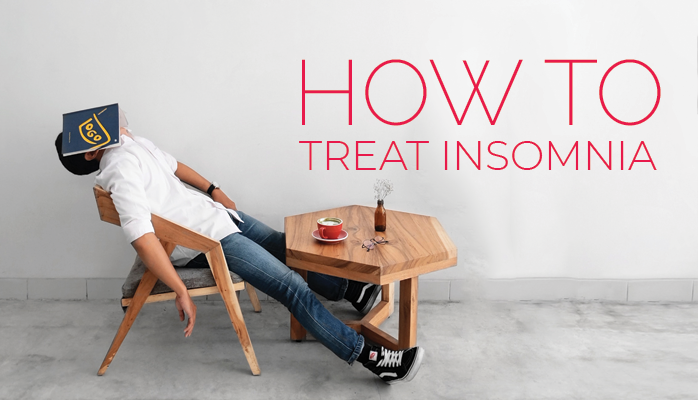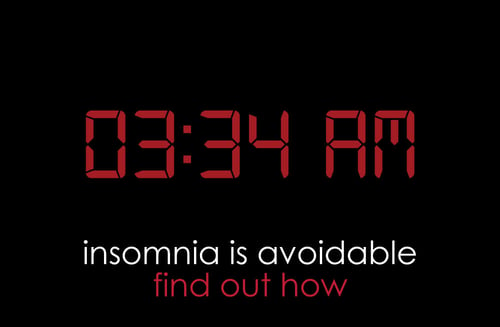What is Insomnia
“Insomnia” is a word that most people frequently toss around to describe cases of sleeplessness. However, the disorder is actually a complicated umbrella term that includes multiple conditions varying in severity.
Insomnia is defined as difficulty falling asleep or staying asleep, even when a person has the chance to do so.
No matter the type of insomnia, those who suffer from the condition commonly complain of the same symptoms:
-
Waking during the night
-
Waking too early
-
Fatigue during the day
-
Irritability
-
Depression
-
Anxiety
-
Difficulty concentrating
-
Increased worry
-
Increased accidents
Types of Insomnia
The types of insomnia are threefold: secondary insomnia, primary insomnia, and Fatal Familial Insomnia.
Secondary Insomnia: This is the most common type of insomnia wherein sleeplessness is pinpointed as a result of another condition. In other words, a patient has insomnia because he or she has a preceding health problem such as lung disease or a heart condition. Those who suffer from secondary insomnia are often able to treat their sleeplessness by taking medicine, seeing a therapist, or changing habits.
Primary Insomnia: This is a rarer form of insomnia that cannot be first explained by a preexisting medical condition. Unfortunately, the root cause and treatment for those who suffer from primary insomnia is not currently known.
Fatal Familial Insomnia: This is the rarest type of insomnia wherein insomnia is a genetic condition passed down from family member to family member. The symptoms for Fatal Familial Insomnia include worsening sleeplessness over time, hallucinations, and delusions. Cases of FFI appear symptomatically similar to dementia.
Insomnia Statistics
Here are some statistics about insomnia:
-
30-35% of adults report brief symptoms of insomnia
-
15-20% of adults report short-term insomnia disorder lasting three months or less
-
10% of adults report chronic insomnia disorder lasting at least three times per week for at least three months [Sleep Education]
-
Women are more likely to suffer from insomnia than men likely due to fluctuations in the hormones estrogen and progesterone
-
More than 10 million people take sleeping pills on a regular basis
-
Obese individuals are more at-risk for insomnia than those with healthy BMIs
-
About a third of those who suffer from insomnia report a comorbidity with an anxiety or mood disorder
-
More than 50% of Americans report sleeplessness due to worry
-
Those who nap late in the day are more likely to suffer from insomnia
-
Those who keep irregular hours and/or go to bed late are more at risk for insomnia due to Circadian Rhythm disruption
-
Those who consume alcohol are more at risk to suffer from insomnia
-
Studies show that high levels of caffeine can cause insomnia
-
Sleeplessness causes the loss of more than $150 billion dollars due to a tired workforce
Insomnia Treatments
Now that insomnia is defined and more understood, how is it that this life-altering condition is treated? Obviously, treatment is dependent upon the severity of the insomnia case. No matter the remedy, it is recommended that you receive professional guidance before seeking serious medical care to combat insomnia.
Natural Remedies for Sleep: Most healthcare professionals advise patients suffering from sleeplessness to try non-invasive, natural remedies at home at first. Many people have found success with chamomile tea, St. John’s wort, passion flower, and melatonin. Others have reported great success with meditation and yoga. Making time for self-care, relaxation, exercise, and healthy habit formation is recommended as the first step towards recovery.
Cognitive Behavioral Therapy (CBT): For individuals who have not found success with at-home remedies, the non-medial treatment of cognitive behavioral therapy is another route many have found successful in treating insomnia. According to the Sleep Foundation, CBT “works to challenge unhealthy beliefs and fears around sleep and teach rational, positive thinking.”
Alternative Medicine: Those who suffer from more serious cases of insomnia have the option of taking medication. Of course, individuals who consult with doctors must be considered a good fit for prescription drugs. If a doctor deems a patient in need, any number of prescription medications may be prescribed. These could include antidepressants, benzodiazepines, doxepine, eszopiclone, ramelteon, suvorexant, zaleplon, zolpidem, and over-the-counter sleep aids [WebMD].
No matter the end solution, the first step in treating insomnia is diagnosis. Seeking help at the Anchorage Sleep Center will provide you with the answers you need.



